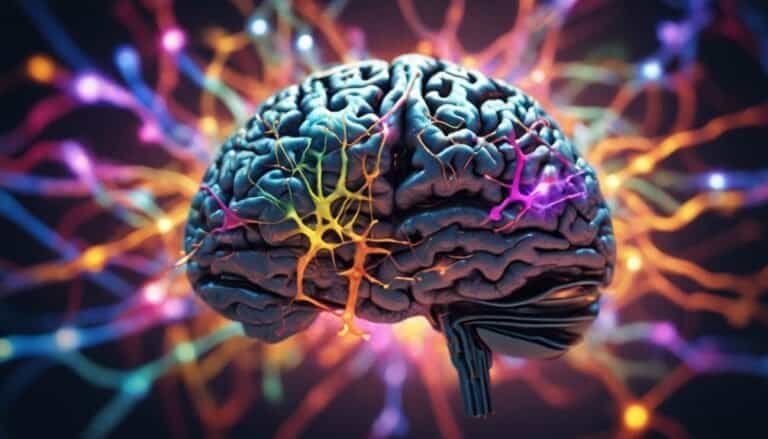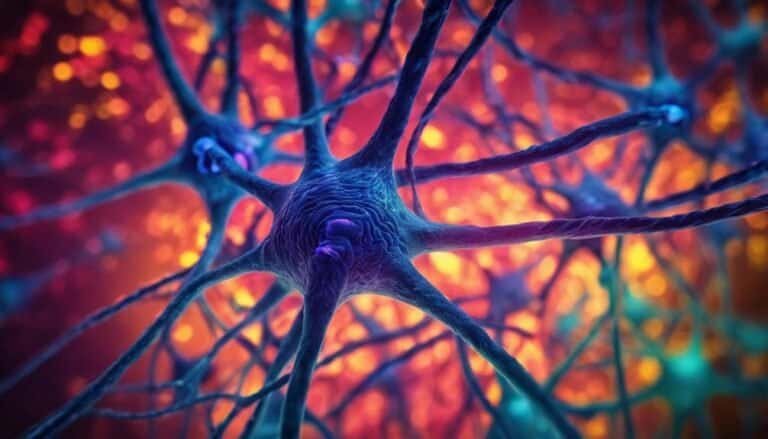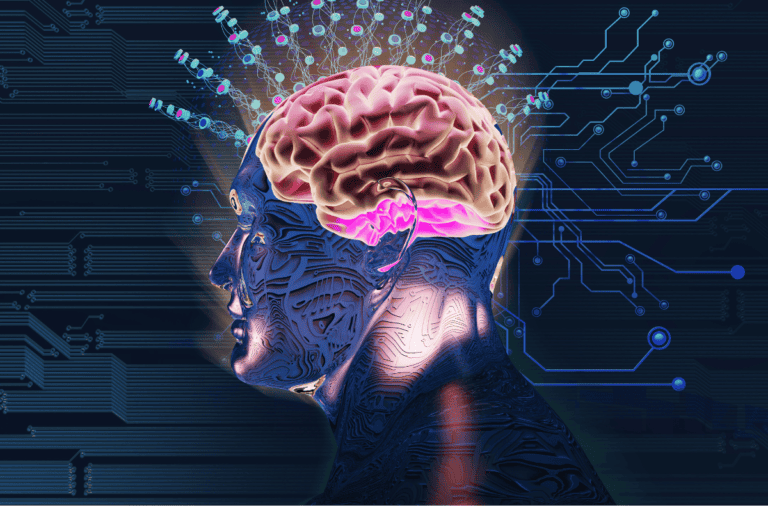Brain Waves and Meditation
Did you know that research has shown that experienced meditators exhibit stronger gamma brain waves than non-meditators?
Understanding how brain waves are influenced by meditation can offer fascinating insights into the power of this ancient practice.
As you explore the connection between meditation and brain waves, you'll uncover the profound effects different meditative techniques can have on your mind and overall well-being.
Stay tuned to discover the practical benefits and tips for optimizing your meditation experience.
Key Takeaways
- Meditation alters brain waves, increasing alpha and theta waves for relaxed focus and problem-solving.
- Increased alpha and theta waves promote calmness, reduce stress, and enhance emotional connection.
- Altered brain waves through meditation improve focus, memory, creativity, and emotional regulation.
- Consistent meditation practice is crucial for reaping the benefits of altered brain waves.
Brain Waves Overview
Brain waves are electrical impulses produced by the brain that can be measured using electroencephalography (EEG) technology. These waves are categorized into different frequencies, with alpha waves being one of them. Alpha waves are neural oscillations in the frequency range of 8-12 Hz and are typically present when you're awake but in a relaxed state, such as during meditation.
Understanding brain waves is integral to grasping the complexities of the sleep cycle. During sleep, the brain goes through distinct stages marked by different brain wave patterns. For instance, during deep sleep, delta waves dominate, while REM sleep is characterized by a mix of beta and theta waves. By monitoring these brain waves, scientists can gain insights into the quality of sleep and overall brain health.
The interplay of various brain waves throughout the sleep cycle is crucial for maintaining cognitive functions, memory consolidation, and emotional regulation.
Types of Brain Waves
Within the realm of neuroscience, various types of brain waves play a crucial role in understanding neural activity and cognitive processes. These brain waves are categorized based on their frequency range and are associated with different states of consciousness.
Here are some key types of brain waves:
- Alpha Waves: These brain waves typically range from 8 to 12 Hz and are present when you're in a relaxed yet alert state. They're commonly associated with a calm and meditative mind.
- Theta Waves: Falling within the 4 to 7 Hz range, theta waves are linked to deep relaxation, creativity, and insights. They're often observed during meditation and light sleep stages.
- Delta Waves: Delta waves have the lowest frequency, below 4 Hz, and are prominent during deep, dreamless sleep. They play a vital role in the restorative processes of the body and mind.
- Gamma Waves: With frequencies above 30 Hz, gamma waves are associated with high-level cognitive functioning, memory recall, and peak concentration. They're crucial for information processing and perception.
- Beta Waves: Ranging from 12 to 30 Hz, beta waves are present during wakefulness and focused mental activity. They're associated with alertness, critical thinking, and problem-solving.
Meditation's Impact on Brain Waves
Transitioning from the discussion on types of brain waves, understanding how meditation impacts neural activity provides valuable insights into cognitive processes and states of consciousness.
When engaging in mindfulness practice, such as meditation, brain activity undergoes significant changes. Studies have shown that meditation can alter brain waves, particularly increasing the presence of alpha and theta waves. Alpha waves are associated with a relaxed but alert mental state, while theta waves are linked to creativity, deep relaxation, and increased memory retention.
During meditation, the brain's electrical activity shifts, with increased alpha waves indicating a state of relaxed focus and decreased distractions. This heightened alpha wave activity suggests a reduction in stress and anxiety levels, promoting a sense of calmness and mental clarity. Moreover, the presence of theta waves during meditation may enhance problem-solving abilities and foster a deeper connection with one's thoughts and emotions.
Benefits of Altered Brain Waves
When considering the benefits of altered brain waves during meditation, enhanced cognitive functions become apparent. Through the modulation of brain wave patterns, individuals can experience improvements in various aspects of mental well-being.
Some benefits of altered brain waves during meditation include:
- Improved Focus: Altered brain waves can help sharpen your concentration abilities, allowing you to stay more attentive and focused on tasks.
- Stress Reduction: By promoting specific brain wave frequencies, meditation can assist in lowering stress levels and promoting relaxation.
- Enhanced Memory: Certain altered brain wave states have been linked to improved memory retention and recall.
- Increased Creativity: Altered brain waves can stimulate creative thinking processes, fostering innovative ideas and problem-solving skills.
- Emotional Regulation: Through the influence of brain wave patterns, meditation can aid in regulating emotions and promoting a sense of inner calmness.
These benefits showcase the profound impact that altered brain waves during meditation can have on cognitive functions, stress management, and overall mental well-being.
Practical Tips for Meditation
To optimize your meditation practice, implementing practical tips can enhance your focus and overall experience. When it comes to breathing techniques, focusing on deep, rhythmic breaths can help you center your mind and achieve a state of relaxation conducive to meditation.
Mindfulness practices involve being fully present in the moment, observing your thoughts without judgment or attachment. This awareness can be honed by gently redirecting your focus to your breath whenever your mind starts to wander.
Incorporating mindfulness practices into your meditation routine can help you cultivate a sense of inner peace and clarity. Additionally, setting aside a designated time and space for meditation can create a conducive environment free from distractions. Consistency is key, so aim to meditate regularly to reap the full benefits.
Experiment with different techniques to discover what works best for you, whether it's focused attention meditation, loving-kindness meditation, or body scan meditation. By incorporating these practical tips into your meditation practice, you can deepen your focus, enhance relaxation, and experience the transformative power of mindfulness.
Conclusion
In conclusion, understanding the relationship between brain waves and meditation can provide valuable insights into the benefits of this ancient practice. By altering brain waves through meditation, individuals can experience improved focus, reduced stress, and enhanced overall well-being.
Utilizing practical tips for meditation can help individuals harness the power of their brain waves for optimal mental and emotional health. Remember, the key to unlocking the potential of meditation lies in mastering the art of controlling your brain waves.







